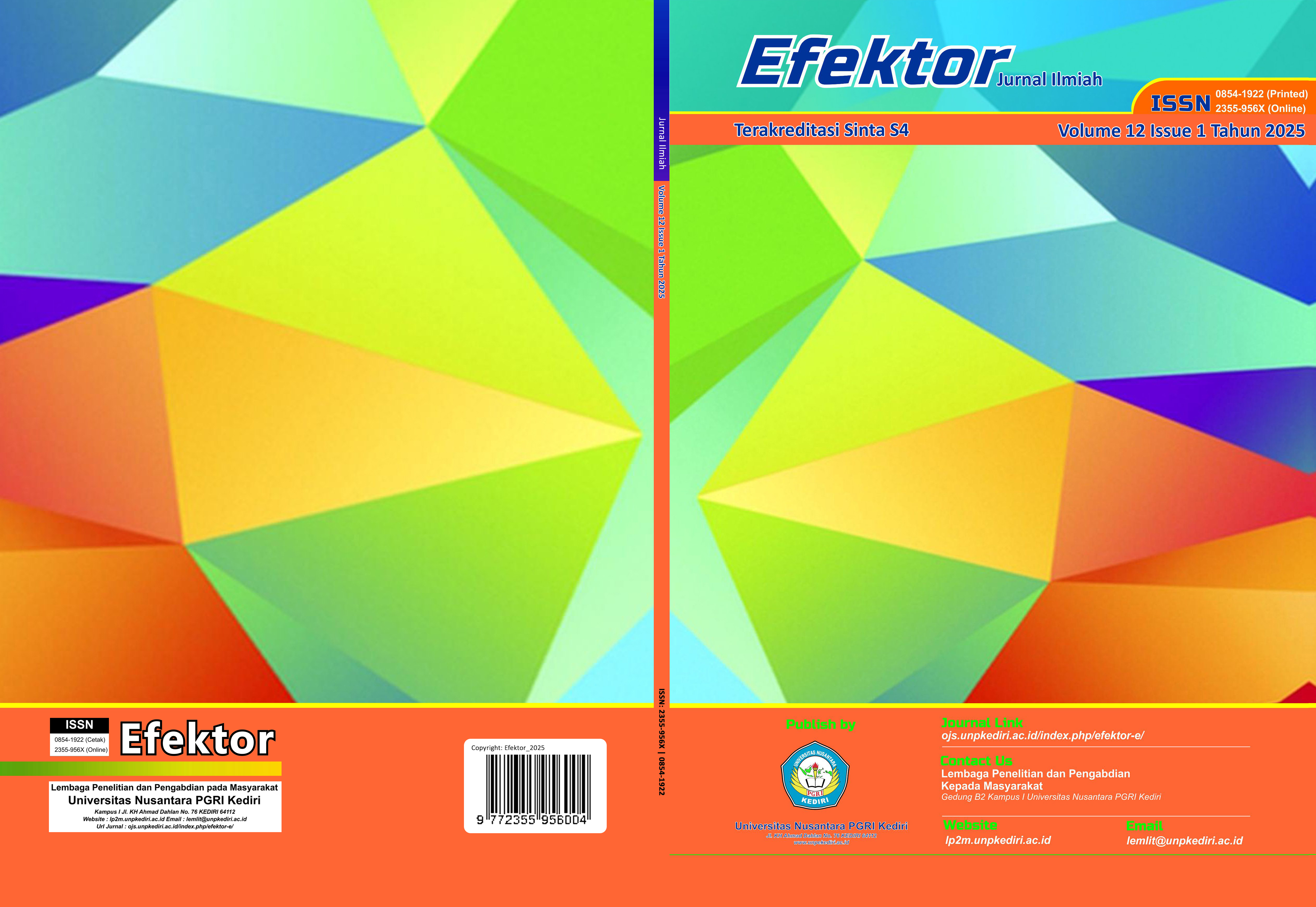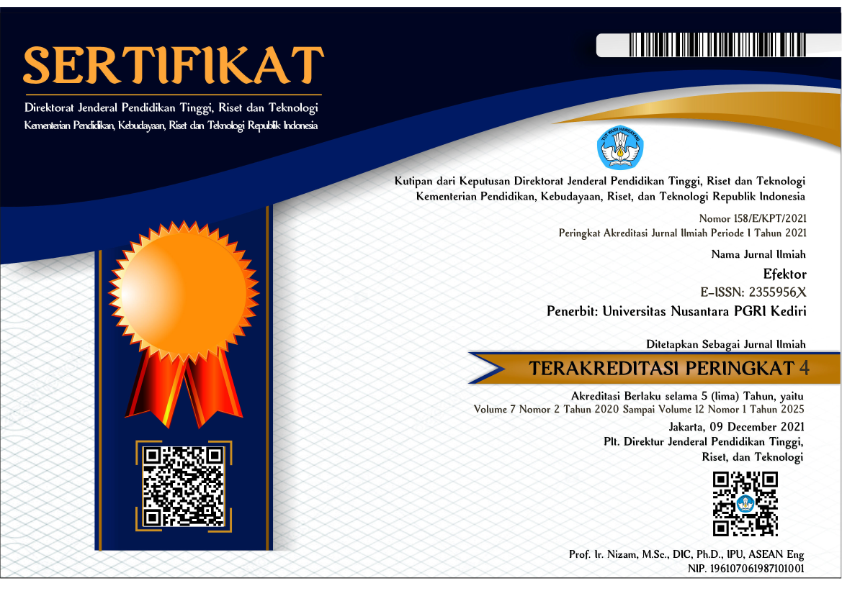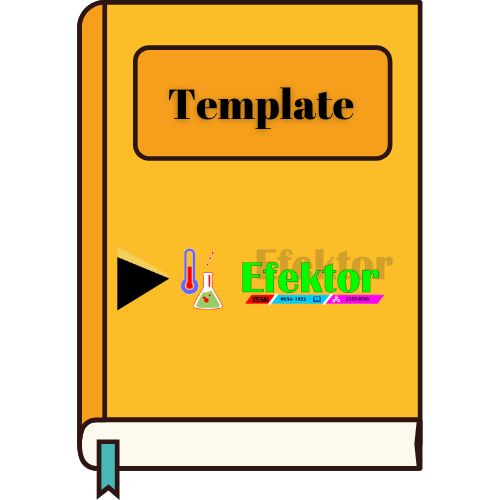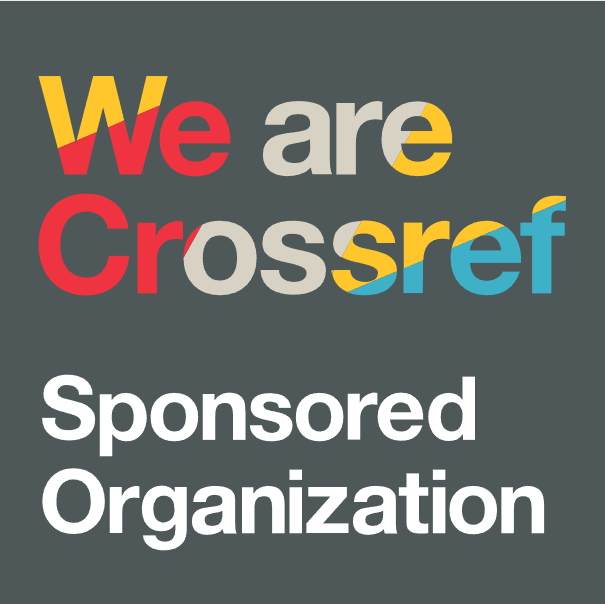Improving Business Performance and Development through Work Culture, Work Ethic, and Motivation: An Empirical Study on Soto Lamongan Culinary Entrepreneurs in Kediri City
DOI:
https://doi.org/10.29407/e.v12i1.25142Keywords:
motivation, performance, SEM-PLS, work culture, work ethicAbstract
The survival and developing nature of this culinary business, there are factors other than economic elements but non-economic factors in the form of work culture, dedication to work, and the encouragement of business stakeholders. This study aims to analyze the effectiveness of work culture, work ethic, and motivation affecting the performance and growth of the Soto Lamongan culinary sector in Kediri City, examining the direct and performance-mediated impacts. In accordance with the purpose of this study, the statistical analysis used is Structural Equation Modeling with Partial Least Square (SEM-PLS). The variables used are latent variables that cannot be measured directly or the measurement using projections in the form of indicators is the main reason for using the SEM method, while the reason for using PLS is a sample used by 56 respondents with less than 100 respondents. The software used to conduct data analysis in this study is SmartPLS version 4.0. The results of the analysis show that work culture and motivation positively and significantly affect business performance and growth. In contrast, work ethic does not show significant contributions. In addition, work culture and motivation were also found to indirectly affect business development.
References
Aini, N., Lie, D., & Antropologi FIB UB. (2024). Pelestarian Wisata Kuliner Lokal dalam Meningkatkan Ekonomi Daerah. Jurnal Gastronomi Nusantara, 5(1), 15-27.
Bruton, G. D., Sutter, C. J., & Lenz, A. (2021). Economic development via entrepreneurial organizations: The role of institutional context. Entrepreneurship Theory and Practice, 45(5), 1035-1057. https://doi.org/10.1177/1042258720958024
Chang, J., & Lee, H. (2023). Cultural economic sustainability in traditional culinary businesses: A case study of Southeast Asia. Journal of Cultural Economics, 47(2), 289-312. https://doi.org/10.xxxx/jce.2023.289
Chien, M. S., Lin, H. Y., & Rajan, R. (2023). Peran Kuliner Tradisional Nusantara dalam Memengaruhi Kegiatan Ekonomi dan Bahasa di Indonesia. Jurnal Pendidikan Bahasa dan Sastra Indonesia, 12(2), 99-110.
Creswell, J. W., & Creswell, J. D. (2018). Research Design: Qualitative, Quantitative, and Mixed Methods Approaches (5th ed.). SAGE Publications.
Deci, E. L., & Ryan, R. M. (2022). Self-determination theory in work motivation: A review and research agenda. Journal of Organizational Behavior, 43(1), 35-57. https://doi.org/10.1002/job.2518
Gehman, J., Glaser, V. L., Eisenhardt, K. M., Gioia, D., Langley, A., & Corley, K. G. (2021). Cultural entrepreneurship and identity work in business traditions. Academy of Management Journal, 64(3), 743-769. https://doi.org/10.xxxx/amj.2021.743
Ghozali, I. (2021). Aplikasi Analisis Multivariate dengan Program IBM SPSS 26 & SmartPLS 3 (10th ed.). Badan Penerbit Universitas Diponegoro.
Gürlek, M., & Tuna, M. (2021). Authentic leadership and creativity: The mediating role of work engagement. Journal of Business Research, 136, 334-342. https://doi.org/10.1016/j.jbusres.2021.07.024
Hair, J. F., Hult, G. T. M., Ringle, C. M., & Sarstedt, M. (2021). A Primer on Partial Least Squares Structural Equation Modeling (PLS-SEM) (3rd ed.). SAGE Publications.
Hamidah, N., & Hakim, L. (2023). Budaya Kerja dalam Usaha Kuliner Tradisional: Studi Kasus pada Soto Lamongan. Jurnal Sosial dan Humaniora, 15(1), 77-89.
Hassan, R., Mohamad, N. H., & Ali, M. A. (2022). Sustaining traditional culinary businesses through cultural identity and innovation. International Journal of Hospitality Management, 102, 103-128. https://doi.org/10.xxxx/ijhm.2022.103128
Hofstede, G., Hofstede, G. J., & Minkov, M. (2022). Cross-cultural economic behaviors: The influence of tradition on economic activities. International Business Review, 31(4), 567-589. https://doi.org/10.xxxx/ibr.2022.567
Huggins, R., & Thompson, P. (2021). The behavioural foundations of urban and regional development: Culture, psychology and agency. Regional Studies, 55(4), 654-667. https://doi.org/10.1080/00343404.2020.1833855
Kim, S. J., Park, Y., & Lee, T. (2023). The role of traditional food culture in social interactions and economic sustainability. Journal of Business Research, 157, 112-127. https://doi.org/10.xxxx/jbr.2023.112127
Luthans, F. (2020). Organizational Behavior: An Evidence-Based Approach (14th ed.). McGraw-Hill Education.
Mangkunegara, A. P. (2022). Human resource performance management. Journal of Human Resource Management Research, 55(2), 180-195. https://doi.org/10.1002/hrm.23045
Moeljono, D. (2018). Budaya Korporat dan Keunggulan Perusahaan. Jakarta: Gramedia Pustaka Utama.
Munthe, A. P. (2020). Analisis Motivasi dan Etos Kerja Terhadap Kinerja Karyawan Food Court. Jurnal Bisnis dan Manajemen, 7(2), 112-125.
Robbins, S. P., & Judge, T. A. (2019). Organizational Behavior (18th ed.). Pearson Education.
Saunders, M., Lewis, P., & Thornhill, A. (2019). Research Methods for Business Students (8th ed.). Pearson.
Sekaran, U., & Bougie, R. (2016). Research Methods for Business: A Skill-Building Approach (7th ed.). Wiley.
Simón-Moya, V., Revuelto-Taboada, L., & Ribeiro-Soriano, D. (2022). The impact of entrepreneurship on economic growth: The mediating role of innovation. Small Business Economics, 58(1), 177-193. https://doi.org/10.1007/s11187-021-00562-7
Siti Hamidah, Imam Nur Hakim (2023) Systematic Review of Trends in Dark Tourism Research , MOZAIK HUMANIORA: Vol. 23 No. 2 (2023): MOZAIK HUMANIORA VOL. 23 NO. 2
Soraya, D. (2022). Eksistensi Usaha Mikro Makanan Tradisional Sunda dalam Meningkatkan Perekonomian di Kota Bandung. Jurnal Nusantara, 4(3), 45-58.
Suryana, & Kartib, I. (2021). Kewirausahaan: Pendekatan Karakteristik Wirausaha Sukses. Bandung: Alfabeta.
Tobin, J. (2019). The role of work ethics in sustainable business practices. Journal of Business Ethics, 161(3), 495-509. https://doi.org/10.1007/s10551-018-3989-4
Urbano, D., Aparicio, S., & Audretsch, D. (2022). Institutions, entrepreneurship, and economic growth: The emerging role of digitalization. Technological Forecasting and Social Change, 175, 121302. https://doi.org/10.1016/j.techfore.2021.121302
Utami, R., Sugiharto, A., & Nugroho, P. (2023). Culinary traditions and economic resilience: A study on small-scale food businesses in Indonesia. Asia Pacific Journal of Business, 50(1), 91-110. https://doi.org/10.xxxx/apjb.2023.91
Utami, Sri (2018) Kuliner Sebagai Identitas Budaya: Perspektif Komunikasi Lintas Budaya Journal of Strategic Communication Vol. 8, No. 2, Hal. 36-44. Maret 2018
Wibawati, S., & Prabhawati, N. (2021). Industri Kuliner sebagai Warisan Budaya Indonesia. Jurnal Pariwisata dan Perhotelan, 10(1), 33-42.
Wibowo, A. (2021). Motivation and work performance in the food service industry. Journal of Business Research, 130, 479-488. https://doi.org/10.1016/j.jbusres.2021.08.015
Zahra, S. A., Wright, M., & Abdelgawad, S. G. (2022). Cultural resilience in family-owned culinary enterprises: Lessons from Indonesia. Entrepreneurship Theory and Practice, 46(2), 329-354. https://doi.org/10.xxxx/etp.2022.329
Downloads
Published
Versions
- 2025-05-20 (2)
- 2025-05-20 (1)
Issue
Section
License
Copyright (c) 2025 Poniran Yudho Leksono, Sigit Ratnanto

This work is licensed under a Creative Commons Attribution-ShareAlike 4.0 International License.
Authors who publish with this journal agree to the following terms:
- Copyright on any article is retained by the author(s).
- The author grants the journal, the right of first publication with the work simultaneously licensed under a Creative Commons Attribution License that allows others to share the work with an acknowledgment of the work’s authorship and initial publication in this journal.
- Authors are able to enter into separate, additional contractual arrangements for the non-exclusive distribution of the journal’s published version of the work (e.g., post it to an institutional repository or publish it in a book), with an acknowledgment of its initial publication in this journal.
- Authors are permitted and encouraged to post their work online (e.g., in institutional repositories or on their website) prior to and during the submission process, as it can lead to productive exchanges, as well as earlier and greater citation of published work.
- The article and any associated published material is distributed under the Creative Commons Attribution-ShareAlike 4.0 International License













